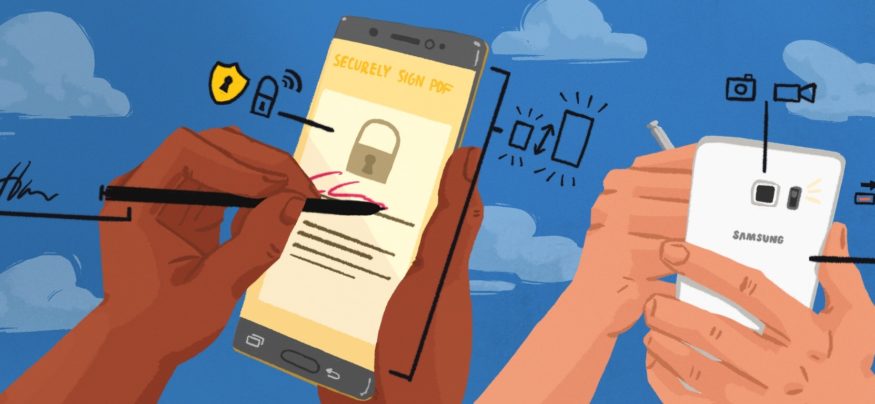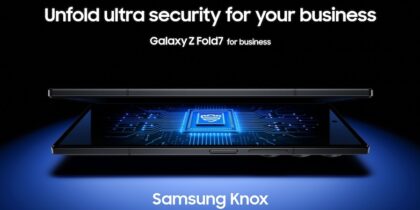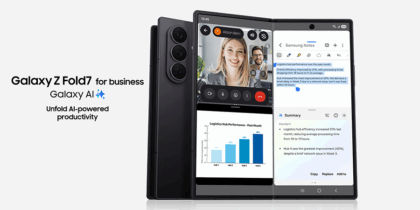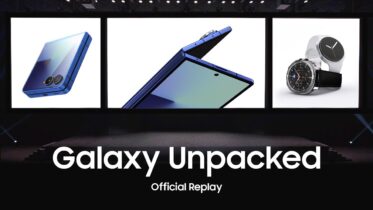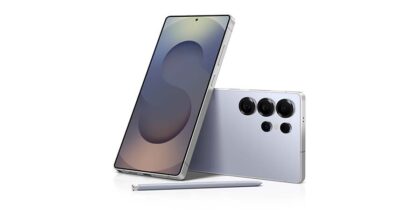Enterprise users are increasingly looking to their smartphones to deliver mobile productivity. According to a recent Frost & Sullivan survey, employees estimate smartphones boost their productivity by 34 percent and save them nearly an hour of work time each day. Custom-developed and third-party mobile apps are streamlining core business functions, allowing employees to be more timely and accurate in their work. According to the Frost and Sullivan study, 58 percent of employees say they always or usually turn to their smartphones to access business productivity applications.
So, as workers look to do more on their smartphones and less on traditional PCs, it’s not surprising that they are demanding more productivity features from their mobile devices, from stylus technology and expandable storage, to bigger screens and longer battery life. The following mobile productivity trends are at the forefront of the convergence of mobile-first business and personal lives.
Pen-Enhanced Productivity
Essential for users leaving their laptops at home are input technology and user experience advancements such as styluses. Field services workers can use large-screen smartphones to fill out electronic forms from anywhere. While there’s still no escape from PDF documents, whether they’re sales proposals, contracts or technical documentation, technology like the sylus enables mobile workers to annotate and sign off on these documents just as they would if they were lugging around the paper copies in their messenger bags (but without the sore shoulders). More pen-compatible business and consumer apps are launching each week, making the stylus an increasingly powerful input tool.
“Mission Impossible” Data Security
Fingerprint scanning has become standard in smartphone security. But users can now implement advanced security technology like two-factor authentication or secure payment platforms like Samsung Pay, or even protect their personal or business data in a Knox container.
Expandable Storage for Data-Hungry Mobile Users
Expandable storage is important for enterprises that may not want data stored in the cloud for security, compliance or other business reasons.
Take, for example, mobile devices shared between repair technicians who work different shifts supporting manufacturing machinery. During a work shift, the techs may take photos and videos of the machinery they repair to collaborate with coworkers or outside vendors, or just for maintenance records. At the end of the shift, the technician can just pull out their expandable storage card and hand it to the new tech coming on, and they’re ready to start their shift.
Similarly, swapping out memory cards saves field services workers, like insurance claims adjusters who take lots of pictures and conduct audio interviews, from having to go back to the local office or pull into a coffee shop to download data or sync their phone with a laptop.
Big Screen for Enterprise Mobile Apps
Early smartphones sported screens less than 3.5 inches diagonally across, but average display size has continued to increase ever since, as users sought more real estate to do more on their devices. Smartphones with large screens are driving a new de facto productivity standard in the mobile enterprise, allowing users the option of a large-screen device they can hold in one hand and is available all the time.
Now that customer relationship management (CRM), enterprise resource planning (ERP), analytics, sales enablement and productivity applications include robust mobile client apps, large-screen smartphones enable workers to have a better user experience when working with these apps on their mobile devices.
Longer Battery Life and the Ability to Multitask
Using business tools like mobile chat and productivity apps remotely also means that users need to be able to multitask from their mobile devices. Mobile device battery life is a key concern for consumer and enterprise users alike, and all-day battery life and fast wireless charging are essential. Heavy usage of a smartphone for mobile productivity can put a strain on battery life, and it’s especially important for field services workers and salespeople who aren’t tethered to a desk with a power strip during their workday.
Samsung’s line of enterprise-ready smartphones drive efficiency and productivity. Check out our full line of devices here to find out how they can benefit your business.
